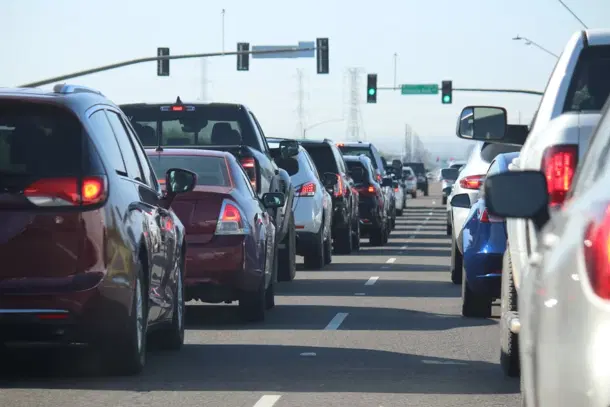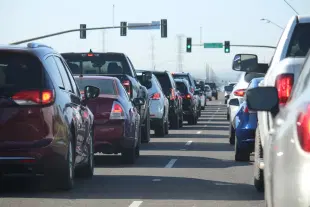News Brief
December Auto Sales Fall 12 Per Cent YoY: FADA Data Highlights Industry Woes
Vansh Gupta
Jan 08, 2025, 03:28 PM | Updated 03:28 PM IST
Save & read from anywhere!
Bookmark stories for easy access on any device or the Swarajya app.


Retail automobile sales in India for December 2024 saw a sharp decline, falling 12 per cent year-on-year (y-o-y) and a steep 45.26 per cent month-on-month (m-o-m), according to data released by the Federation of Automobile Dealers Associations (FADA).
This contraction reflects ongoing demand challenges within a slowing economy, with all vehicle categories except tractors reporting negative growth.
Category-Wise Breakdown
Two-Wheelers (2W): The segment recorded a significant y-o-y decline of 17.6 per cent and a staggering 54.2 per cent drop m-o-m.
FADA attributed this sharp fall to delayed crop payments, halted government disbursements, supply shortages for popular models, and the growing shift toward electric vehicles (EVs).
Passenger Vehicles (PV): Sales dipped 1.9 per cent y-o-y and 8.8 per cent m-o-m. High inventory levels following the festive season, coupled with aggressive discounting strategies by co-dealers, contributed to the slowdown.
"Poor market sentiment, limited new model launches, and intense price competition further impacted sales," stated C S Vigneshwar, President, of FADA.
Commercial Vehicles (CV) & Three-Wheelers (3W): These categories also saw contractions of 5.2 per cent and 4.5 per cent y-o-y, respectively, as subdued economic activity and rising costs weighed on demand.
Tractors: Bucking the trend, the tractor segment grew by 25.7 per cent y-o-y, reflecting a healthier year for the farm sector.
The broader downturn in the auto sector underscores persistent demand-side issues exacerbated by delayed rural payments, subdued government spending, and sluggish consumer sentiment.
Supply chain bottlenecks for certain models, combined with a push toward EV adoption, further contributed to the slowdown in traditional vehicle sales.
Additionally, in the PV segment, inventory challenges post-festive season and limited product innovation led to a subdued market response.
Dealers also cited price competition as a factor affecting overall retail sales.
Despite December's slump, retail vehicle sales grew by 9 per cent for the calendar year 2024. This growth came amidst multiple headwinds, including heatwaves, pre-election uncertainty, and slowing economic growth.
Looking ahead, dealer sentiment for January is cautiously optimistic. A FADA survey revealed that 48.09 per cent of dealers anticipate growth, 41.22 per cent expect stable demand, and 10.69 per cent foresee a potential decline.
FADA remains hopeful that a combination of post-harvest demand recovery, improving rural liquidity, and anticipated government spending ahead of the 2025 Union Budget may help revive sales momentum in the coming months.
Vansh Gupta is an Editorial Associate at Swarajya.





